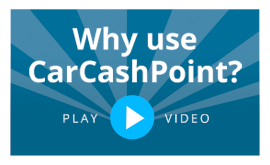
So you've watched a bit of Casey Neistat and thought, "I can do that!", or you've spent the last few weeks in lockdown reading all of the mummy blogs you can find and realised they all say roughly the same thing: 'babies are hard work, but they are cute though'?
If you've been thinking of moving into making money online, looking into a career as a blogger or a vlogger could be a great step, and the best thing is you can do both in your spare time, fitting it around your current full-time work until you start making money.
Whether you want to write about your favourite hobbies, how to do them and why everyone else should do them, or you're a bit of an extrovert who really wants to get onto the small screen and have their own show, there is a world of possibilities waiting for you on the internet.
It's Not So Easy
Just remember, though, the golden rule of all of this is "if it's so easy, why isn't everyone doing it", the fact is that neither blogging for a living and certainly not vlogging for a living is easy work. It's not just a sit back and watch the money come in exercise. Both require hard work, perseverance, and passion.
If you're considering YouTube, there is also a whole host of equipment you'll want to get too, like cameras, lights, microphones, and editing software. Let's also not forget the YouTube comments section; it really can be brutal.
Don't let this put you off, though. Both blogging and vlogging can be incredibly rewarding, and let's face it, probably more fun than your current job!
What Is Blogging?
Blogging in it's most simple form is writing an article and posting it online. Just writing a generic article about a generic topic, though, is hardly going to get you anywhere when it comes down to it. Instead, you need to put effort into looking into your topic to ensure that it's well served for search volume and that the competition isn't too high to compete with.
Blogging for money is all about picking the right niche and making money in that niche from affiliates, ads, and info products like e-books and courses.
For example, the weight-loss niche is highly competitive, but a niche like building a smart home may not be as competitive.
Blogs need to be of a substantial length and contain useful unique information if you want to blog for profit. That means blogs from 800-5,000+ words and full of good helpful content that your users will really get a lot of value out of on a particular subject and answering a particular question.
Pros and Cons of Blogging
Being a professional blogger has some huge positives, but if you want to make money blogging, you must be prepared for a lot of hard work, and at first, you will probably not get a lot of return at all. It's a stark reminder that around 95% of blogs fail, but this is usually because the blog owner gives up rather than really throwing themselves into the tasks at hand and making a good income from it. It is possible; it just requires commitment.
Pros:
- Write whenever you want to
- Own your site
- Write on a topic you enjoy
- Blogs are best written from "hands-on" experience
- Work from anywhere -all you need is a laptop
- Hire out writers
- Monetisation options are huge
Cons:
- Search analysis takes a while to get right
- Blogs can take around 34 weeks to rank organically
- Some niches are incredibly competitive
- Some niches don't get the search volume
- A LOT of content is needed to rank properly
-You can quickly run out of steam, even on a topic you love
How To Blog For Money
Once you've got a decent amount of content on your site, around 30 articles, or approximately 75,000 words spread out across 30 articles, you'll want to look at monetisation options.
Ads are the logical first palace to go, but ad sense from Google is a really low paying ad broker. Other options include ad brokers such as Ezoic and Mediavine, but there are many others to explore. RPM for ads is OK, and you should be able to make around £750 from 30,000 page views per month.
Ads are not your only option though, feel free to check out affiliate links. Amazon is popular but very poor on returns, and there are many affiliate schemes like Clickbank, Rakuten, Awin, and others who will hook you up with all kinds of retailers.
Once you've installed affiliate links across your site and monetised with ads, it's time to consider if your blog is worthy of info products? This could come in the form of an e-book or a course, or even coaching or consulting. An e-book is completely passive, a course (either a 'paper' course or a video course) is mostly passive, although you'll make more money with a subscription service course.
Coaching and consulting isn't passive, but it can be very lucrative.
What Is Vlogging?
The term 'vlogging' is generally used to describe people who film their daily lives and put the videos on YouTube. Famous vloggers include Casey Neistat, who has over 10m YouTube subscribers, largely from his daily vlogs he ran for 2 years, and of course, the likes of Logan Paul.
Vlogging in itself doesn't make money, though, and it's an incredibly hard thing to break into. It's better if you are thinking of doing this as a pure money-making exercise to think less of a simple vlog and more of a YouTube channel.
YouTube channels, much like blogging, need to be helpful and provide the audience with something interesting or something useful. This might be exploring tiny house builds or learning to knit along with you.
Either way, a money-making 'vlog' should be less like a diary and more like a helpful 10 minute per week educational channel.
Pros and Cons of Vlogging
Making money vlogging or creating YouTube videos looks like so much fun, and it certainly looks like it's not a lot of work, but sadly this is a fallacy. Making YouTube videos is a lot of work, and it requires a lot of dedication.
If you want to be a one-man band, you'll need to script, shoot, edit, and market your channel. That's a lot of work for one person, but it's not undoable at all.
Pros:
- Fun to do
- You can make money from your hobby
- There is lots of support from the 'creators' world
- Faster to build a following than a blog
- The barrier to entry for YouTube is much higher (because you need to put yourself/your voice on film)
Cons:
- It is a LOT of work
- You probably won't see your subscriber rate grow very quickly
- YouTube commenters can be brutal
- It can be very lonely
- You can burn out
- You can run out of steam
- YouTube ads isn't a great RPM
How to Vlog for Money
Vlogging for money can be difficult, or it can be easy, but it all depends on how much effort ad work you are willing to put into your business, and you must think of it as a business rather than a fun past time.
When people think of making money on YouTube, they immediately think of YouTube ad revenue, and this is definitely a way to make money, but it's by no means the most lucrative. YouTube Ads RPM runs at about £10 per 1000 views on average, which isn't a lot.
However, it's worth installing monetisation when you can and having that ad revenue trickling in, but it's also worth expanding.
Here are some ways to vlog for profit on YouTube that may or may not be suitable for every channel:
- Ad revenue
- Sponsorships
- Info products (eBooks, e-courses, downloads, LUTs, Presets, etc.)
- Physical products (physical books, workshops, etc.)
- Supporter donations (Super Chat, Patreon, etc.)
- Merchandise
- Events
- Subscription services
- Consulting or Coaching
Vlogging for profit can be done, but it's probably not a good bet to try to vlog your life. Instead, go for a helpful channel to share interesting things on an interesting niche and aim for sponsorships and info products to make the most money.
Conclusion
Both vlogging and blogging are great ways to earn extra income online, and they aren't mutually exclusive either. If you run a successful blog, there's no reason why you can't also run a successful YouTube channel and vice versa.
In fact, running both concurrently can be incredible for your brand and really allow you to expand to more audiences, especially if you cover the other social networks like Facebook and Instagram with your content strategy, too, driving clicks back to your website to make sales or driving leads.
Both vlogging and blogging take a lot of work and a lot of set up, but with the potential to make money doing something or writing about something that you really love, what have you got to lose?



